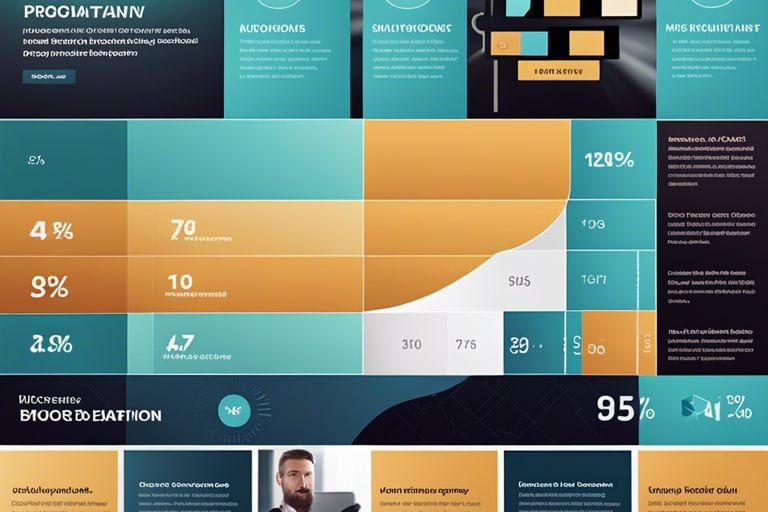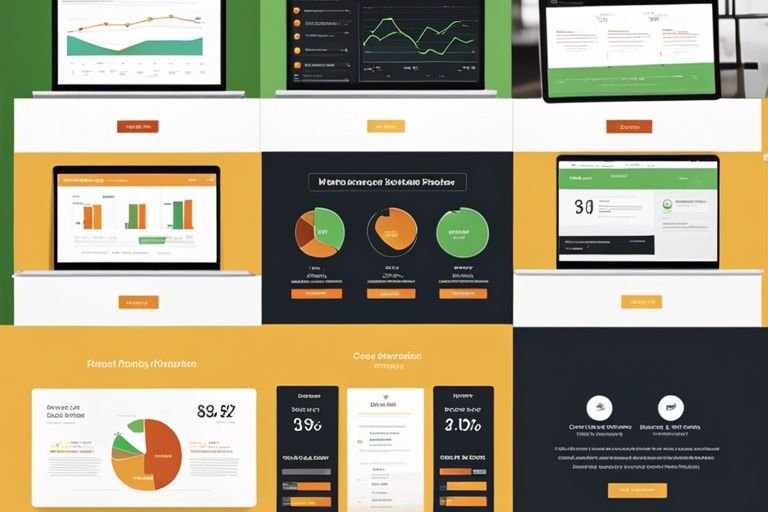Just as the digital landscape continues to evolve, data-driven insights are becoming the cornerstone of successful PPC marketing strategies. Leveraging data to make informed decisions can significantly impact the performance and effectiveness of PPC campaigns. In this blog post, we will explore some critical examples of how data-driven insights are revolutionizing the way PPC marketing is executed, leading to better results and higher returns on investment.
Key Takeaways:
- Data-driven insights play a crucial role in PPC Marketing by providing valuable information to optimize campaigns and drive better results.
- Examples of data-driven insights in PPC Marketing include keyword performance analysis, conversion tracking, and audience segmentation to improve targeting.
- By leveraging data-driven insights, marketers can make informed decisions, allocate budgets effectively, and achieve higher ROI in their PPC campaigns.

Understanding PPC Marketing
The Role of Data in PPC Campaigns
A crucial aspect of PPC marketing is the utilization of data to drive campaign decisions. Through the analysis of various data points such as click-through rates, conversion rates, and keyword performance, marketers can gain valuable insights into the effectiveness of their campaigns. Understanding these metrics allows marketers to optimize their strategies, target the right audience, and maximize their ROI.
Key Performance Indicators in PPC
Key Performance Indicators (KPIs) in PPC campaigns are necessary metrics that indicate the success of a campaign. These KPIs can include Cost Per Click (CPC), Click-Through Rate (CTR), Conversion Rate, and Return on Ad Spend (ROAS). Understanding these KPIs is crucial for measuring the performance of a campaign and making data-driven decisions to improve results.
Plus, it’s important to remember that focusing solely on vanity metrics like high CTR can be misleading. Conversion Rate and ROAS are ultimately the metrics that indicate the success of a campaign in terms of generating leads or sales. By monitoring these key metrics closely and making adjustments based on the data, marketers can ensure they are driving valuable results from their PPC efforts.
Data-Driven Audience Targeting
Demographic Insights
With data-driven audience targeting in PPC marketing, businesses can gain valuable demographic insights to tailor their campaigns effectively. By analyzing data such as age, gender, location, and income level of their target audience, marketers can create more relevant and personalized ad campaigns that are likely to generate higher engagement and conversion rates.
Behavioral Targeting and Personalization
Any successful PPC campaign utilizes behavioral targeting and personalization to enhance ad relevance and drive conversions. By leveraging data on user behavior, such as search history, browsing habits, and purchase intent, advertisers can create highly targeted campaigns that speak directly to the individual’s interests and needs. This level of personalization can significantly improve ad performance and ROI.
For instance, by analyzing user interactions with previous ads or website content, marketers can customize ads to match specific behaviors and preferences. This can result in more qualified leads, higher click-through rates, and ultimately, more successful campaigns.
Optimizing PPC Campaigns with Data
A/B Testing in Ad Copy and Design
To optimize PPC campaigns effectively, marketers can utilize data-driven insights through A/B testing in ad copy and design. A/B testing involves creating two versions of an ad with subtle differences in text, imagery, or layout to determine which one performs better. By analyzing metrics such as click-through rates and conversion rates, marketers can identify the most effective elements to optimize their campaign performance.
Bid Management Strategies
With bid management strategies, marketers can make data-driven decisions to maximize ROI and reach campaign goals. By leveraging bid automation tools and algorithms, marketers can adjust bids in real-time based on performance data and target metrics such as Cost Per Acquisition (CPA) or Return on Ad Spend (ROAS). This proactive approach ensures that budget allocations are optimized for each keyword, ad group, or campaign.
Design campaigns with a focus on data-driven insights to continually refine and enhance performance. By monitoring key performance indicators and leveraging advanced analytics tools, marketers can identify trends, patterns, and opportunities for optimization. Adjusting bid strategies, ad copy, and targeting parameters based on data analysis ensures that PPC campaigns are continuously evolving to meet business objectives.
Analyzing Competitor Data
Despite the challenges in the digital advertising landscape, leveraging competitor data is crucial for optimizing your PPC campaigns. In his article on Achieving Success with Data-Driven PPC Advertising, Manzur Hossain highlights the importance of utilizing competitor insights to stay ahead in the market.
Market Share Insights
Any successful PPC strategy begins with a deep understanding of your competitors’ market share. By analyzing their online presence, ad placements, and messaging strategies, you can identify areas where you can gain a competitive edge. Utilize tools like SEMrush or SpyFu to gather valuable data on your competitors’ performance metrics and ad strategies.
Ad Spend and Keyword Gap Analysis
Analyzing competitors’ ad spend and keyword gaps can provide invaluable insights for enhancing your own campaigns. For instance, identifying keywords that your competitors are targeting but you are not can uncover new opportunities for expansion. Additionally, comparing ad spend levels can help you allocate your budget more efficiently and effectively. By gaining a comprehensive understanding of your competitors’ strategies, you can make more informed decisions to improve your PPC performance.

ROI and Profitability Analysis
Cost-Per-Acquisition and Customer Lifetime Value
All successful PPC campaigns rely on a deep understanding of Cost-Per-Acquisition (CPA) and Customer Lifetime Value (CLV). By tracking the cost to acquire a customer and the potential profit that customer will bring over their lifetime, marketers can make informed decisions about campaign investments. Analyzing these metrics allows businesses to optimize their PPC strategies for maximum profitability.
Budget Allocation and Scale Opportunities
Proper budget allocation is crucial for maximizing ROI in PPC marketing. Data-driven insights help marketers identify the most lucrative channels and keywords to invest in, ensuring that resources are allocated to the most profitable areas. Scale opportunities can also be uncovered through data analysis, revealing areas where increasing budget can lead to significant growth in revenue.
Opportunities: By identifying underperforming campaigns and reallocating budget to high-performing ones, businesses can significantly boost their ROI. Additionally, uncovering scale opportunities through data analysis can be a game-changer for expanding the reach and impact of PPC campaigns.
To wrap up
Hence, data-driven insights in PPC Marketing are vital for driving successful advertising campaigns. Examples include analyzing search query reports to refine keyword targeting, using conversion data to optimize ad copy and landing pages, and leveraging audience insights to tailor ad creatives. By harnessing the power of data, marketers can make informed decisions, improve campaign performance, and ultimately achieve their marketing objectives. Incorporating data-driven insights into PPC strategies is a fundamental practice that can significantly impact the success of digital advertising efforts.
FAQ
Q: What are data-driven insights in PPC Marketing?
A: Data-driven insights in PPC Marketing refer to using information and statistics gathered from campaigns to make informed decisions and optimizations. These insights can help marketers understand their audience better, improve campaign performance, and achieve higher ROI.
Q: What are some examples of data-driven insights in PPC Marketing?
A: Some examples of data-driven insights in PPC Marketing include analyzing click-through rates to identify high-performing ad copies, tracking conversion rates to optimize landing pages, utilizing demographic data to target specific audience segments, and monitoring keyword performance to adjust bidding strategies.
Q: How can data-driven insights benefit PPC Marketing campaigns?
A: Data-driven insights can benefit PPC Marketing campaigns by providing valuable information that can be used to enhance targeting, messaging, and overall campaign effectiveness. By leveraging data, marketers can make strategic decisions, allocate budget more efficiently, and continuously optimize their campaigns for better results.



